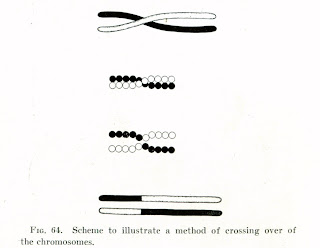Happy Christmas and a reminder
I'm taking a break for Christmas for the next week (at least), and I probably won't be posting much (unless something interesting happens). Speaking of something interesting, I am aware that Christiane Amanpour has a special coming out on ABC called " In the Beginning ," and I don't know if I'll be able to see it. It strikes me as one of those sensationalistic shows that will annoy scholars, skeptics, and believers alike. So I'm not recommending it, but I would be curious to hear from anyone who happens to watch it. Also, I wanted to remind everyone that the deadline for submitting to the JCTSB special issue on Symbiosis and Relationship is coming up on January 31. Read all about it at the Creation Biology Society website . I was not going to submit a paper for that issue, but I thought of one that would be good, so I'm scrambling to get it done in time. I hope we'll get a good turnout for that issue, so if you have a paper in progress, d...
